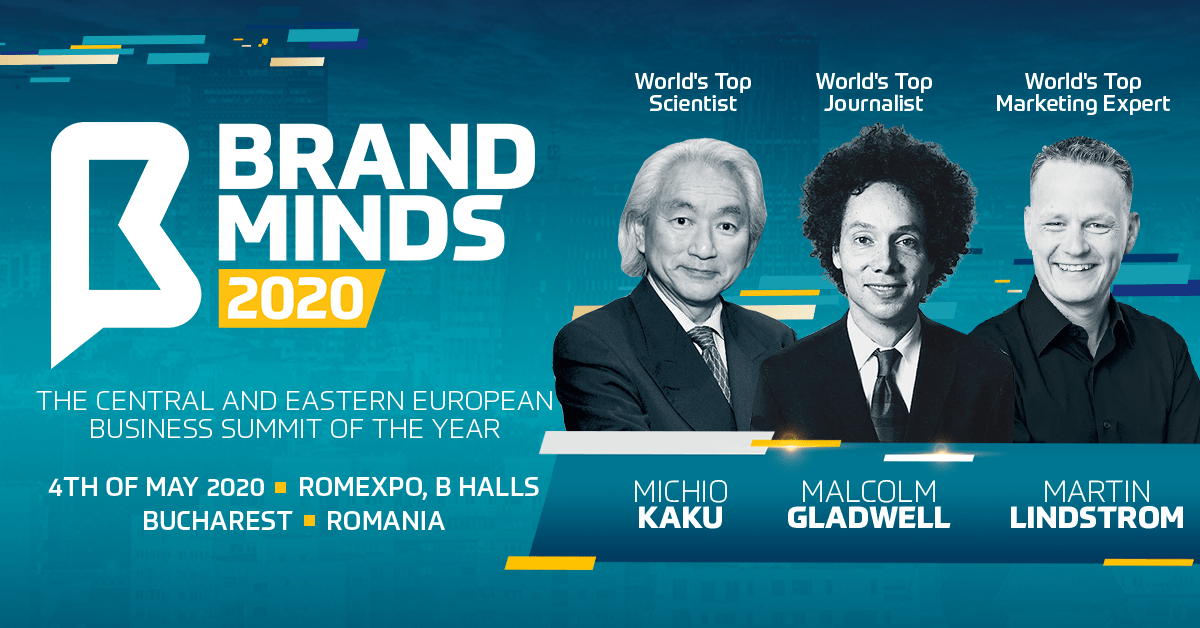Pros and Cons: Fiedler’s Contingency Model of Leadership (with examples)
Fiedler’s Contingency Model of Leadership evaluates the effectiveness of a leader in an organization.
According to this model, a leader’s effectiveness is based on the situation. The framework argues that there is no one best style of leadership and the organization should match a particular leadership style to a particular situation.
How should you apply Fiedler’s Contingency Model of Leadership to your organization?
To answer this question, I have prepared three examples.
Fiedler’s Contingency Model of Leadership example #1 – Advertising Agency Manager

Let’s imagine you are the founder of a major advertising agency. The agency manages a portfolio of several global clients and has won a number of advertising awards. But things have not been going well for the past three years and the company is going through a restructuring and realignment process.
You are looking to replace the current CEO with a new leader. Who would be the right person for the job? What type of leader should be more suited to lead the team at this particular time?
Before you begin looking for a person to hire, analyze the situation according to one of the factors underlining Fiedler’s contingency model: situational favorableness.
Situational favorableness or situational control describes the leader’s ability to control the group situation. More specifically, the degree to which the leader can influence the behaviour of group members in order to face the current situation.
There are three factors that determine the favourableness of a situation: Leader-Member Relations, Task Structure and Leader Position Power.
Leader-Member Relations refers to the degree of mutual trust, respect and confidence between the leader and the subordinates.
Leader Position Power refers to the amount of power the leader has over the group, i.e. to which extent the leader can reward or punish the group’s members.
Task Structure refers to the extent to which group tasks are clear and structured.
Since you are looking to bring a new person to lead the team, this person is at a disadvantage: the team doesn’t know him/her, and trust, respect and confidence are earned.
So the new leader has poor leader-member relations but has a strong position power since he controls resources and can reward or reprimand the team’s members.
Working in an advertising agency requires a high level of creativity therefore the team’s members perform tasks that are not structured. So the agency environment has a low task structure.
According to Fiedler’s Contingency Model of Leadership, the most effective leader in this particular situation is high-LPC or relationship-oriented. This type of leader will focus on building relationships with the team members first.
When the relationship between the leader and team members is based on confidence and trust, everyone’s work is easier. Find what is a high-LPC leader.
Fiedler’s Contingency Model of Leadership example #2 – Sportswear Shop Manager

Let’s assume you are the owner of a sportswear brick-and-mortar shop. Business is picking up and you are planning to expand to three new locations. So you need a manager for your main shop. You are looking to hire externally. He or she will lead a team of five employees. Every team member knows what they need to do to run the shop. Given the situation, the person you will hire will have strong position power, poor leader-member relations in a structured task environment.
According to Fiedler’s Contingency Model of Leadership, the leader most likely to succeed in influencing the team is high-LPC. Even in situations where tasks are structured, the leader still needs to build a good relationship with team members.
Fiedler’s Contingency Model of Leadership example #3 – App Development Team Leader

You are the CEO of a large software corporation. Over the last five years, the company has added a new service to its portfolio: application development. The offering has proved highly successful with the number of clients rising constantly every year. The application development department is comprised of four small teams lead by a team leader. One of the leaders has left the corporation and the position is vacant. Because team members have built tight relationships with one another, you have decided against hiring externally. Instead, you will promote one of the team’s members to team leader.
In this particular situation, what type of leader should be the most effective?
Because the person you promote is coming from within the team, he or she will have good leader-member relations, but a weak position power since they don’t control the resources. Also, the environment is highly technical so the tasks are structured.
According to Fiedler’s Contingency Model of Leadership, the most effective leader is low-LPC or task-oriented. The promoted person already has the support of his team members, so to be a successful leader, he or she needs to be task-oriented.
Pros and Cons of Fiedler’s Contingency Model of Leadership
The premise of Fiedler’s Contingency Model of Leadership is that a person’s leadership style is determined by the person’s life experiences and cannot be changed. That was the main approach to leadership in the sixties. Things have changed since then.
Extensive research conducted in the following decades showed that people, though influenced by previous experiences, are not defined or limited by them.
People can move past their previous experiences. Leaders can adapt their leadership style to different situations. They can shift between styles (and there are 12 of them!) to better suit the situation at hand.
In his 1995 bestseller Emotional Intelligence, renowned behaviour scientist and psychologist Daniel Goleman shows that leaders with high emotional intelligence create more connected and motivated teams who are become more invested in the success of the company.
In 2006, when Mindset: The New Psychology of Success was first published, the fixed mindset myth of You either have it or you don’t was busted. According to the author, researcher and psychologist Carol Dweck, having a growth mindset leads to a better and more successful life.
People’s set of skills and abilities can change and grow. Task-oriented leaders can learn to grow and nurture relationships.
Another criticism of Fiedler’s Contingency Model of Leadership is that it fosters a high rate of top executives turnover. The model suggests that whenever the situation requires, the current leader is simply replaced with a more suitable leader. In this respect, the model is a limiting lens through which one can assess a person’s abilities.
Fiedler’s Contingency Model of Leadership is one of the first models which measures the effectiveness of a group’s performance based on the leadership style of their leader.
The model also promotes the idea of analyzing a situation according to three relevant factors: leader-member relations, task structure and leader position power. And then simply match the most adequate leader to the situation.
Another advantage of this model is that it provides a tool for self-assessment. The Least-Preferred Co-Worker (LPC) Scale is a questionnaire that helps the leader to understand their specific leadership style: task-oriented or relationship-oriented. The leader looking to grow their leadership skills can use the LPC scale as a starting point.
Join the Conversation
We’d love to hear what you have to say.
Get in touch with us on our LinkedIn Page, Facebook Page, Twitter or TikTok.
6 things you might not know about Daniel Goleman
Daniel Goleman is one of the world’s renowned psychologists.
Here are 6 things you might not know about him:
WHO IS DANIEL GOLEMAN?
Daniel Goleman is an internationally known psychologist who lectures frequently to professional groups, business audiences, and on college campuses. As a science journalist Goleman reported on the brain and behavioral sciences for The New York Times for many years. His 1995 book, Emotional Intelligence was on The New York Times bestseller list for a year-and-a-half, with more than 5,000,000 copies in print worldwide in 40 languages, and has been a best seller in many countries. Apart from his books on emotional intelligence, Goleman has written books on topics including self-deception, creativity, transparency, meditation, social and emotional learning, ecoliteracy and the ecological crisis.
The Harvard Business Review called emotional intelligence— which discounts IQ as the sole measure of one’s abilities — “a revolutionary, paradigm-shattering idea” and chose his article “What Makes a Leader” as one of ten “must-read” articles from its pages. Emotional Intelligence was named one of the 25 “Most Influential Business Management Books” by TIME Magazine. The Financial Times, Wall Street Journal and Accenture Insititute for Strategic Change have listed Goleman among the most influential business thinkers.
Goleman is a co-founder of the Collaborative for Academic, Social, and Emotional Learning (www.casel.org), originally at the Yale Child Studies Center and now at the University of Illinois at Chicago. CASEL’s mission centers on bringing evidence-based programs in emotional literacy to schools worldwide.
He currently co-directs the Consortium for Research on Emotional Intelligence in Organizations (www.eiconsortium.org) at Rutgers University. The consortium fosters research partnerships between academic scholars and practitioners on the role emotional intelligence plays in excellence.
Goleman is a board member of the Mind & Life Institute, which fosters dialogues and research collaborations among contemplative practitioners and scientists. Goleman has organized a series of intensive conversations between the Dalai Lama and scientists, which resulted in the books Healthy Emotions, and Destructive Emotions. He is currently editing a book from the most recent dialogue on ecology, interdependence, and ethics.
His most recent book, Leadership: The Power of Emotional Intelligence, offers an up-to-date summary of his thinking on leadership by collecting key excerpts from his books together for the first time in one volume with his articles from the Harvard Business Review. These include “What Makes a Leader? and “Leadership that Gets Results.”
Goleman’s other recent book, The Brain and Emotional Intelligence: New Insights gathers together recent findings from brain research and other sources on topics ranging from creativity and optimal performance, the brain-to-brain connection in leadership, and to how to enhance emotional intelligence itself.
Goleman’s 2009 book Ecological Intelligence: How Knowing the Hidden Impacts of What We Buy Can Change Everything argues that new information technologies could create “radical transparency,” allowing us to know the environmental, health, and social consequences of what we buy. As shoppers use point-of-purchase ecological comparisons to guide their purchases, market share would shift to support steady, incremental upgrades in how products are made – changing ever thing for the better.
Goleman’s work as a science journalist has been recognized with many awards, including the Washburn Award for science journalism, a Lifetime Career Award from the American Psychological Association, and he was made a Fellow of the American Association for the Advancement of Science in recognition of his communicating science to the general public.
15 Things you might not know about Daniel Goleman
Daniel Goleman is one of the world’s renowned psychologists. He was a speaker at BRAND MINDS 2018.
BRAND MINDS is The Central and European Business Summit taking place in Bucharest, Romania.
Daniel Goleman is an internationally known psychologist who lectures frequently to professional groups, business audiences, and on college campuses. As a science journalist Goleman reported on the brain and behavioural sciences for The New York Times for many years.
Here you can find some pieces of information you might not know about Daniel Goleman:
1.His 1995 book, Emotional Intelligence was on The New York Times bestseller list for a year-and-a-half, with more than 5,000,000 copies in print worldwide in 40 languages, and has been a best seller in many countries. Apart from his books on emotional intelligence, Goleman has written books on topics including self-deception, creativity, transparency, meditation, social and emotional learning, eco-literacy and the ecological crisis.
2. The Harvard Business Review called emotional intelligence— which discounts IQ as the sole measure of one’s abilities — “a revolutionary, paradigm-shattering idea” and chose his article “What Makes a Leader” as one of ten “must-read” articles from its pages.
3. “Emotional Intelligence” was named one of the 25 “Most Influential Business Management Books” by TIME Magazine. The Financial Times, Wall Street Journal and Accenture Insititute for Strategic Change have listed Goleman among the most influential business thinkers.
4. Goleman is a co-founder of the Collaborative for Academic, Social, and Emotional Learning (www.casel.org), originally at the Yale Child Studies Center and now at the University of Illinois at Chicago. CASEL’s mission centres on bringing evidence-based programs in emotional literacy to schools worldwide.
5. He currently co-directs the Consortium for Research on Emotional Intelligence in Organizations (www.eiconsortium.org) at Rutgers University. The consortium fosters research partnerships between academic scholars and practitioners on the role emotional intelligence plays in excellence.
6. Goleman is a board member of the Mind & Life Institute, which fosters dialogues and research collaborations among contemplative practitioners and scientists. Goleman has organized a series of intensive conversations between the Dalai Lama and scientists, which resulted in the books Healthy Emotions, and Destructive Emotions. He is currently editing a book from the most recent dialogue on ecology, interdependence, and ethics.
7. His most recent book, Leadership: The Power of Emotional Intelligence, offers an up-to-date summary of his thinking on leadership by collecting key excerpts from his books together for the first time in one volume with his articles from the Harvard Business Review. These include “What Makes a Leader? and “Leadership that Gets Results.”
8. Goleman’s other recent book, The Brain and Emotional Intelligence: New Insights gathers together recent findings from brain research and other sources on topics ranging from creativity and optimal performance, the brain-to-brain connection in leadership, and to how to enhance emotional intelligence itself.
9. His work as a science journalist has been recognized with many awards, including the Washburn Award for science journalism, a Lifetime Career Award from the American Psychological Association, and he was made a Fellow of the American Association for the Advancement of Science in recognition of his communicating science to the general public.
10. Recruited by the New York Times to cover psychology and related fields, in 1984 he began a twelve-year sojourn. He learned much about science journalism from his editors and colleagues, a talented crew on the science desk, and the Times offered remarkable access and visibility. But he found that his urge to write about ideas with impact sent him in directions that did not always fit what the Times saw as news.
11. His wife Tara and him tried to spend a good deal of their free time in meditation retreats or travelling together to places they enjoy that nourish this side of their lives. “Life’s simple pleasures—a walk on a beach, playing with grandchildren, a good conversation with a friend—have more appeal to me than professional honours or ambitions,” said Goleman.
12. According to him, vitality arises from sheer human contact, especially from loving connections. This makes the people we care about most an elixir of sorts, an ever-renewing source of energy. “The neural exchange between a grandparent and a toddler, between lovers or a satisfied couple, or among good friends, has palpable virtues…the practical lesson for us all comes down to, Nourish your social connections,” he added.
13. He is twice a Pulitzer Prize nominee. Moreover, The Wall Street Journal ranked him one of the 10 most influential business thinkers and he was named on the 2011 and 2013 Thinkers50‘s editions and a top business guru by Accenture Institute for Strategic Change. His article “ What Makes a Leader?” remains the most requested reprint in the history of Harvard Business Review.
14. Goleman’s newest book, Altered Traits: Science Reveals How Meditation Changes Your Mind, Brain and Body, is co-written with Richard Davidson and will be released September 5, 2017. Through cutting edge research, Goleman and Davidson explore how meditation and mindfulness can achieve real, positive, and lasting mental and behavioural change.
15. In addition to his numerous professional and academic achievements, Goleman stresses how important his private and personal life is to him on his personal website. “While a bio like this focuses on one’s public life, I find that over the years my private life has grown increasingly important to me, particularly as the years allow me to spend less time running around and more time just being. I find more and more that what satisfies me has little to do with how well one or another book does— although the good works I participate in continue to matter much,” he confesses.
Are you a #worldchanger?
Come to BRAND MINDS 2020!
Here are our first confirmed speakers; we will be announcing more speakers in the coming months so stay tuned!
Malcolm Gladwell, Martin Lindstrom and Michio Kaku





